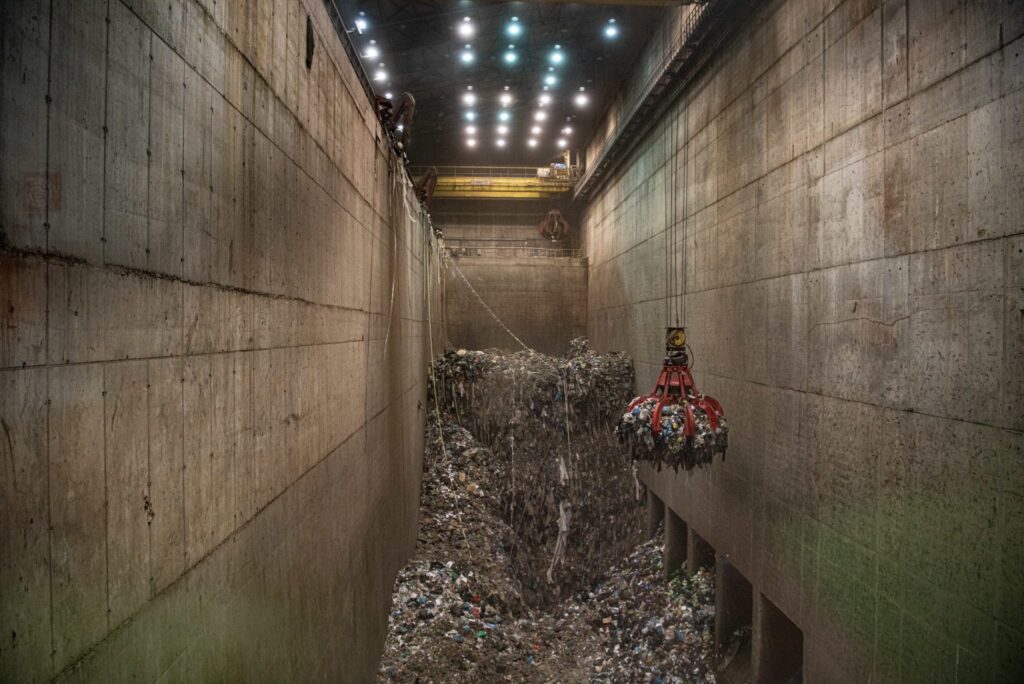Tandridge’s Simon Mander to tackle London Marathon
Tandridge council’s waste and recycling contracts manager Simon Mander is running the London Marathon in April 2017 to raise money for the Down’s Syndrome Association (DSA).

Mr Mander has worked in the recycling and waste management industry for over 25 years, serving local authorities including Horsham and Croydon councils as well as having worked at Defra delivering the National Waste Minimisation and Recycling Fund. He is also a member of the Local Authority Recycling Advisory Committee.
The DSA is a cause that is close to his heart, as his son Finlay, 8, was born with the condition. His wife, Tammy and his two other sons, Hayden age 6 and Kaj age 3, live together in Kent.
Commenting, Mr Mander said: “When Finlay was diagnosed it came as a huge shock to our family. In the beginning we needed all the support and advice we could get and the DSA helpline was there for us when it mattered most. I doubt we would be in such a good place now without their help.
“They helped us to realise that with the right support in place, we could make sure Finlay had everything he needed to thrive. He is such a happy and loving boy, we feel honoured to have him in our lives. Over the years since, the DSA has continued to support us with advice and resources which have been invaluable.
“I want to make sure other families can also benefit from their support. Running a marathon feels like the least I can do to say thank you.”
To donate to Simon’s campaign, click here.
_________________________________________________________________________________________
FCC raises money for Thomas Ball Children’s Cancer Fund
Staff at FCC Environment’s Buckinghamshire energy from waste plant have pulled together to raise £211 to support the work of the Thomas Ball Children’s Cancer Fund.

The fundraising effort came after one of the team lost a family member to cancer. The team carried out the majority of their activities in the run up to the festive season, through a combination of a Christmas jumper day, raffles and collections.
The Thomas Ball Children’s Cancer Fund was founded in 1999 by Thomas Ball, then aged 9 and himself undergoing treatment for neuroblastoma stage four which had been diagnosed some 20 months earlier.
The main objective of the charity is to relieve sickness and distress among children suffering from cancer and members of their families. This can include donating medical equipment, holidays, special gifts and research.
The team of 46 work at FCC Environment’s residual waste treatment facility which forms part of a contract with Buckinghamshire County Council (BCC). The plant was opened officially by The Duke of Gloucester in Autumn 2016.
_________________________________________________________________________________________
Christmas tree campaign raises funds for Portland College
An annual campaign which encourages Nottinghamshire residents to present their real Christmas trees for recycling has raised £1,000 for Mansfield’s Portland College.

Each year, Nottinghamshire County Council’s waste contractor Veolia encourages people with real Christmas trees to take them along to their local recycling centre in January so that they can be shredded for composting.
For every 50 tonnes of Christmas trees sent for recycling throughout January, Veolia has donated £200 to Portland College. The specialist college in Mansfield works with people with disabilities to develop their employability, independence and communication skills. The College is Nottinghamshire county council chairman Councillor Yvonne Woodhead’s chosen charity for her year in office.
Lea Hawkes, general manager for Veolia, said: “This is a fantastic achievement and we would like to say a big thank you to all the ‘Tree-cyclers’ of Nottinghamshire for helping to raise funds for this worthwhile charity, while also helping the environment by recycling. This annual campaign has really captured people’s interest and I am pleased that residents have taken part.”
Damon Musgrove, Portland College’s fundraising manager, said: “This Tree-cycle campaign is fantastic; it has brought us a step closer to buying a much-needed, specially modified mini bus. With 400 learners on site, having this bus will open up many more opportunities, including learners being able to go on more leisure and educational visits, attend off-site training, work experience placements and getting to medical appointments more easily and comfortably.”
_________________________________________________________________________________________
Andigestion donates £5,000 to sports pavilion appeal
Devon food waste processor Andigestion has donated £5,000 to appeal an appeal to provide a community sports pavilion at Holsworthy’s Stanhope Park.

Work has started on a new, purpose built pavilion on the site that the town’s Youth Football and Cricket clubs will be able to call home.
The project, which is being led by Holsworthy town council, has so far attracted funding from a wide range of donors including the Premier League and FA Facilities Fund, Sport England, the English Cricket Board and Devon County Council.
Local businesses, including Holsworthy Andigestion, have also contributed as have members of the community through a Crowdfunder appeal.
Councillor Jon Hutchings, Mayor of Holsworthy, said: “The pavilion project has been years in the planning and we’re delighted that work has now started thanks to the generosity of all our donors who range from local businesses like Andigestion to individual members of the public.
Jason Ward, commercial manager at Andigestion, said he was glad the company had been able to help enable and secure the future of a vital community facility.
“As we’re based in Holsworthy, we are naturally keen to help our neighbours where we can. This is a great example of a community effort and we are delighted that we’ve been able to contribute to the appeal. We’ll watch the development of the new pavilion with great interest.”
Andigestion’s Holsworthy plant, near Bude, currently processes 70,000 tonnes of Devon’s residential and commercial food waste to produce electricity which is fed back into the national grid. The by-product is a liquid fertiliser that local farmers can use in place of carbon-intensive mineral fertilisers.









Subscribe for free